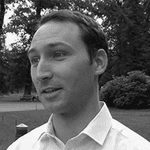Event Recording:
Achieving net zero emissions involves an economic transformation on a scale comparable to the Victorian era, when the foundations of the infrastructure used in the United Kingdom today were put in place.
The scale of the transformation ahead implies that, if successful, our generation will justly be considered the “Victorians of the 21st century".
In the fourth discussion in the Oxford Net Zero Series, hosted by the Oxford Martin School, Professor Cameron Hepburn, Director of the Smith School of Enterprise and the Environment, and Sugandha Srivastav consider the economics of the key technologies, which are increasingly positive. The costs of renewables, batteries and electric vehicles continue to fall. Similar trends are emerging in low-carbon hydrogen and ammonia, which can decarbonise major parts of heavy industry, as well as some long-distance transportation. As further deployment and innovations cut costs, it is no longer entirely implausible that net zero emissions could be achieved at net zero cost (even ignoring significant co-benefits and large benefits from avoiding the worst climate impacts).
The talk examines potential sensitive intervention points organised into the nine categories, with a particular focus on technological interventions to accelerate progress to net zero.

Professor Cameron Hepburn
Director, The Smith School of Enterprise and the Environment
Cameron Hepburn is Professor of Environmental Economics, Lead Researcher on the Oxford Martin Programme on the Future of Plastic and the Oxford Martin Programme on the Post-Carbon Transition, and Director of the Smith School of Enterprise and the Environment. He also serves as the Director of the Economics of Sustainability Programme, based at the Institute for New Economic Thinking at the Oxford Martin School.
Cameron has published widely on energy, resources and environmental challenges across disciplines including engineering, biology, philosophy, economics, public policy and law, drawing on degrees in law and engineering (Melbourne University) and masters and doctorate in economics (Oxford as a Rhodes Scholar). He has co-founded three successful businesses and provides advice on energy and environmental policy to government ministers (e.g. China, India, UK and Australia) and international institutions (e.g. OECD, UN).

Sugandha Srivastav
Research Assistant, Oxford Martin School Programme on the Post Carbon Transition
Sugandha Srivastav is a DPhil candidate in Environmental Economics under Professor Cameron Hepburn. Her research interests include green innovation, growth & structural transformation, and climate policy.
Sugandha previously worked as an economist at Vivid Economics where she focused on energy, natural resource management, and sustainable growth. Her clients included development finance institutions, national governments, and private sector companies. Prior to that Sugandha worked at the Indian Council for Research on International Economic Relations.
Sugandha holds an MSc in Economics from the London School of Economics and a BSc from the University of Warwick. At Oxford, Sugandha is affiliated with Oriel College, the Smith School of Enterprise and Environment, the Institute of New Economic Thinking, and is also a researcher for the Oxford Martin School Programme on the Post Carbon Transition as well as the Oxford Martin Programme on Technological and Economic Change.

Dr Steve Smith
Executive Director, Oxford Net Zero
Dr Steve Smith joins the Smith School of Enterprise and the Environment from the UK Department for Business, Energy and Industrial Strategy (BEIS) where he co-led the Climate Science Team for two years. He played a key role in the legislation of the Net Zero emissions target last year, and on developing the Government's approach to greenhouse gas removal. As well as advising ministers and policy teams he oversaw several areas of climate research, including the Met Office Hadley Centre Climate Programme, the Greenhouse Gas Removal Programme co-funded with UKRI, and understanding of carbon sources and sinks on land for the UK emissions inventory.
Before joining BEIS, Steve was Head of Science at the Committee on Climate Change. There he was involved in setting the UK's 2050 target and carbon budgets, as well as starting up the committee's work on climate adaptation. He gained a PhD in atmospheric physics from Imperial College London after studying Physics at Oxford. He is a fellow of the Royal Meteorological Society and of the Cambridge Centre for Science and Policy.
Keep in touch
If you found this page useful, sign up to our monthly digest of the latest news and events
Subscribe